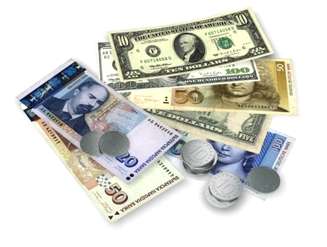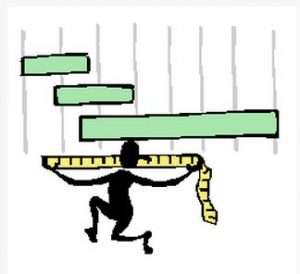Is Depreciation a Fixed Cost or Variable Cost?

In cost management, it’s essential to distinguish between fixed costs and variable costs. But, depreciation can be confusing. Is it a fixed cost or a variable cost? Let’s explore it to gain clarity. Is depreciation a fixed cost or variable cost?
What is Depreciation?
Depreciation is the decrease in value of an asset over time. It includes wear and tear, obsolescence, and other factors that reduce an asset’s worth. Many might think it’s a fixed cost, as it remains consistent. But, there’s more to it.
From one perspective, depreciation is a fixed cost. It occurs regularly and is not affected by production or sales volume. So, whatever the business activity, the cost of depreciation stays the same.
However, there’s another perspective. Depreciation can also be seen as a variable cost. The expenses are often allocated to individual products or services. So, the more produced or sold, the higher the portion of depreciation per unit. This shows the variability of depreciation.
To manage this effectively, businesses can use strategies that consider both views. They could use activity-based costing (ABC) to allocate depreciation across products/services. This means factoring in usage rates and production volume into the formula. Another approach is exploring alternative asset financing. For example, leasing instead of buying equipment. This may avoid direct ownership and long-term depreciation.
To know if depreciation is a fixed or variable cost, multiple angles and contexts must be considered. By using strategic allocation methods (like ABC) and exploring financing options, businesses can manage the impact of depreciation on their cost structure.
Definition of Depreciation
Depreciation is a finance and accounting concept for allocating the cost of an asset over its useful life. It’s a way to represent the decrease in value of tangible items like buildings, machinery, or cars. Instead of recognizing the full cost at once, depreciation lets businesses spread this expense out through time.
To know whether depreciation is fixed or variable, it’s important to know the difference between them. Fixed costs stay the same no matter production or sales changes. Variable costs, however, move up and down with production or sales changes.
Depreciation can be both Fixed and Variable
Depreciation can be both fixed and variable, depending on how it’s calculated. Initially, when calculating depreciation for financial reporting, straight-line or declining balance methods may be used. These spread out an equal amount each year until the asset’s useful life is done.
From a manager’s perspective, depreciation can be seen as a variable cost. Managers observe how production changes affect expenses and decide if adjustments are needed. For example, if more output leads to more repairs or a shorter asset life, then depreciation cost increases.
Let’s look at a widget manufacturing company with specialized machinery costing $100 per widget over five years (fixed rate). They expect to produce 10 million annually. But due to higher demand and more efficient processes, they make 12 million that year. The machinery experiences more wear and tear, resulting in higher depreciation expenses due to the increase in production. This shows how depreciation can be seen as a variable cost that changes with production.
Knowing the double-sided nature of depreciation is essential for businesses. It helps them make decisions like production levels, pricing strategies, and budgeting. By recognizing the complexity of depreciation, companies can manage their assets and boost financial performance.
Fixed Costs vs. Variable Costs
Fixed costs and variable costs differ. Fixed costs are expenses that don’t change, like rent, salaries, and insurance. Variable costs, though, go up or down with production levels, like direct labor and raw materials.
See the comparison table below!
| Fixed Costs | Variable Costs | |
|---|---|---|
| Definition | Expenses that remain constant regardless of production or sales volume | Expenses that vary with changes in production or sales volume |
| Examples | Rent, salaries, insurance | Direct labor, raw materials |
Fixed costs are needed to run the business, but variable costs vary with the output. Some expenses can be both fixed and variable. To manage costs:
- Figure out which costs are fixed and which are variable.
- Look for ways to reduce costs. You can’t reduce fixed costs much, but you can look for savings from suppliers, and by optimizing resource use.
- Don’t sacrifice quality in the pursuit of cost savings.
By managing fixed and variable costs, businesses can make strategic decisions and be successful.
Is Depreciation a Fixed Cost?
Depreciation: a finance buzzword. It refers to the loss of value of an asset, due to wear or obsolescence. Is it a fixed cost or a variable one?
Let’s explore. Depreciation isn’t tied to production or sales levels. It represents the cost of an asset divided by its useful life. and that won’t change whether production is 100 or 1000 units. So, it’s generally seen as a fixed cost. But there are exceptions. If an asset’s use is connected to production, like rental equipment, then depreciation can be a variable cost.
Businesses should take action. First, they must track and document assets and their useful lives. Also, they should regularly review and reassess assets to keep up with tech changes and other factors that may affect their value.
Is Depreciation a Variable Cost?
Depreciation is not a variable cost. It does not vary with production or sales changes. It is, however, important to understand in financial accounting.
Here is a table that shows the difference between fixed and variable costs:
| Cost Type | Fixed Cost | Variable Cost |
|---|---|---|
| Definition | Costs that do not change | Costs that vary directly |
| with changes in production | or sales vol. | |
| Examples | Rent, salaries, | Raw materials, |
| insurance premiums | direct labor, | |
| energy costs |
Note that depreciation is classified as a fixed cost. It remains the same regardless of how much is produced or sold. Fixed costs are essential for businesses as they are used for financial planning and budgeting.
It is also important to comprehend the role of depreciation in calculating net profit. It allows for the cost of an asset to be spread out over its useful life. This helps provide a more accurate representation of a company’s profitability.
Investopedia states that fixed costs, including depreciation, are vital for businesses. They are used to determine break-even points and profit margins.
Comparison between Depreciation as a Fixed Cost and as a Variable Cost
Comparing depreciation as a fixed and variable cost is essential for financial analysis. It’s crucial to understand the differences, implications, and how they impact business operations. To better understand the difference between fixed and variable depreciation, here’s a table:
| Fixed Cost Depreciation | Variable Cost Depreciation |
|---|---|
| 1. Constant over time | 1. Varies with production |
| 2. Does not change | 2. Grows with production |
| 3. Non-current assets (e.g. buildings) | 3. Asset value changes |
| 4. Linked to equipment use |
Understanding depreciation can help businesses allocate expenses and see their effect on profitability. Fixed deprecation stays the same no matter the production, while variable deprecation follows output. It’s important to analyze both costs to make informed decisions about investments, pricing, and targets.
Here are some tips to manage these costs:
- Evaluate asset usage: Check utilization to minimize variable depreciation.
- Lease instead of buy: Depending on needs, consider leasing instead of buying to avoid high fixed depreciation costs.
- Implement preventive maintenance: Keeping assets in good condition with regular maintenance extends their life and minimizes depreciation expenses.
By following these suggestions, businesses can effectively manage depreciation and maximize efficiency and performance.
Depreciation a Fixed Cost or Variable Cost
Depreciation can be a fixed or variable cost, depending on how it’s used in a business. There’s no universal answer.
- In some cases, depreciation is a fixed cost. This means the expense stays the same no matter production or sales volume.
- In other scenarios, it’s a variable cost. This means the amount of depreciation changes with production or sales. For instance, if a manufacturing firm uses machinery that depreciates based on usage hours or output, the amount of depreciation will vary.
It’s important to consider how assets are depreciated when deciding if depreciation is fixed or variable. Straight-line depreciation, where the same amount is recorded every period, is fixed. But, accelerated methods like declining balance or sum-of-the-years-digits lead to different amounts of depreciation every period – this is more variable.
To control depreciation expenses, companies should:
- Do regular asset evaluations to identify assets without returns. By disposing or selling these assets, depreciation expense can be reduced.
- Use more accurate and efficient depreciation models that fit their industry and asset usage patterns. This could involve software or consulting experts for help with calculating and forecasting depreciation.
Frequently Asked Questions
Q: Is depreciation a fixed cost or a variable cost?
A: Depreciation is considered a fixed cost as it does not change with the level of production or sales.
Q: How is depreciation different from variable costs?
A: Variable costs fluctuate with the level of production or sales, whereas depreciation remains constant over time.
Q: Why is depreciation classified as a fixed cost?
A: Depreciation is a fixed cost because it is associated with the ownership and use of long-term assets, such as buildings, machinery, or vehicles, which are essential for a business’s operations.
Q: Can depreciation ever be considered a variable cost?
A: No, depreciation cannot be considered a variable cost because it is not affected by changes in production volume, sales revenue, or other variable factors.
Q: How is depreciation accounted for in financial statements?
A: Depreciation is typically recorded as an expense on the income statement and reflected as a decrease in the value of assets on the balance sheet.
Q: Does depreciation impact a company’s cash flow?
A: Depreciation is a non-cash expense, meaning it does not directly impact a company’s cash flow. However, it reduces taxable income, which can have an indirect impact on cash flow through tax savings.
















Leave a Reply